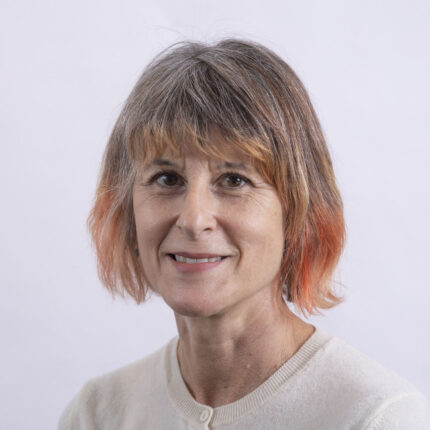Community-engaged learning, also known as service learning, is often lauded by us advocates for its potential benefits to students and communities, yet we are guilty of not fully acknowledging the challenges associated with such approaches.
As practitioners, we’ve seen first-hand the positive impact on student’s critical thinking skills, understanding of their subject, personal and professional development, and civic and social growth. Yet, facilitating these modules usually takes so much more in terms of time and input, and as tutors, we often find ourselves saying it’s about double the amount of work compared to a “normal” module.
Key challenges we encounter include logistical issues, community partner engagement, assessment and evaluation methods, teaching staff engagement and training, ethical considerations, and sustainable and mutually beneficial partnerships between universities and communities. However, we, like many of our colleagues, have learned to juggle the potential challenges and complexities that come from working in partnership with communities and use these as opportunities for learning.
Working in response to the complexity of a real-life problem sets up the experience to be far richer than a purely theoretical mode of teaching, provided we can account for the situation’s additional messiness and imperfect nature. If we overmanage these learning experiences into benign, well-managed projects, we inadvertently smooth out what are essentially the best bits, the character; but if we ignore the dynamics of partnership work, building effective relationships, and student support, if we are too careless, the opportunities for learning are damaged.
Balancing act
Elena’s module “From Strategic Vision to Urban Plan” sits within the RTPI accredited MSc in Spatial Planning at UCL and provides students with an opportunity to collaborate with a London-based community group in a live planning or regeneration project. The module aims to develop students’ planning skills, including community engagement skills, by contributing to the preparation of planning strategies and designs driven by locally articulated needs and agendas.
In practice, students’ projects can take different formats, from developing evidence-based policies in the context of neighbourhood planning, established by the 2011 Localism Act to encourage communities to engage directly with plan-making, to surveying, mapping and analysing London’s high streets as a contribution to a community-led review of commercial gentrification; to the preparation and running of community engagement strategies for active grassroots campaign.
By collaborating with community groups and their experience, this module exposes students to the inherent contradictions between collective and privatised interests (see Ferm and Raco, 2020) that underpin the contemporary planning profession, and to the difficulties of developing a planning knowledge and practice that are truly plural, diverse, respectful, sustainable and inclusive. So, it is a balancing act: one which is dynamic and represented by keeping in check the push and the pull of community-university partnership work.
There are other challenges might you encounter working in this way – but they can be skilfully, or at least mindfully, navigated.
Heightened assessment anxiety
In community-engaged learning, traditional teaching for the sake of assessment becomes less feasible in real-world situations. This can lead to increased anxiety among students accustomed to a more structured and predictable assessment process. The shift towards experiential learning and complex real-world challenges may require identifying alternative assessment methods that align with community engagement goals and sit alongside the assessment of practice, knowledge and critical thinking skills. Co-designing assessments with students and community groups can relieve assessment anxiety and create the condition for a shared understanding of what gets learnt and by whom.
Establishing the conditions and opportunities for critical reflection
Students may draw the wrong conclusions from their community experiences without proper guidance and support for critical reflection. For instance, witnessing resource limitations in community settings might reinforce existing stereotypes or preconceived notions about poverty rather than fostering a deeper understanding of systemic issues. It is essential to incorporate reflective practices that encourage students to analyse their experiences and challenge their assumptions critically. Establishing the conditions and opportunities for all involved (students, community partners, staff) to critically reflect on the learning and collaborative experience and its limitations is equally important. This ensures a more comprehensive pedagogy that embraces its own weaknesses and messiness.
Jeopardy in partnership management
Establishing and maintaining partnerships between students, communities, and academic staff can be challenging. There is an inherent risk of letting partners down and failing to deliver the desired outcomes. Managing these risks and ensuring mutually beneficial relationships requires dedicated effort and resources. The hidden work involved in partnership management, such as communication, coordination, and addressing any conflicts or issues that may arise, can make community-engaged learning modules resource-intensive endeavours.
To navigate challenges such as these successfully, we need organisational cultures that develop and value these programmes and the contributions of communities. This involves more than just the odd module here and there, but a reframing of the culture of education toward collaborative, values-based work, responsive both to the long-term needs of society and the more pressing needs. This involves rebuilding our learning environments that help facilitate programmes that make the world a better place.
We will be discussing these challenges and how they can be addressed today at the Learning to Make a Difference event organised by the University of Westminster, the National Coordinating Centre for Public Engagement, and the Institute for Experiential Education and Skills-Based Learning.
This article was inspired by a recent report incorporating 30 case studies of service learning published by the National Coordinating Centre for Public Engagement, commissioned by the University of Westminster, Taking Stock of Engaged Learning: How universities are supporting community-based and service-learning.













